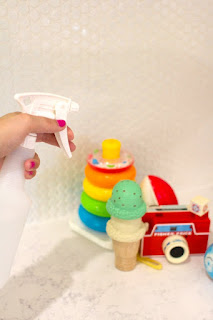Eco-Friendly Disinfectant
As the world continues to fight against the novel coronavirus, you’re probably making changes to your standard of living — whether it means making some sacrifices to your typically zero-waste lifestyle or if it means embracing a more eco-friendly way of living as you learn to make the foremost of what you've got came your home.
Contemporary disinfectants which are derived from alcohols, ammonium compounds, aldehydes, oxidizing agents, and phenolics. they're applied to surfaces in bathrooms, kitchens, and hospitals to destroy microorganisms. While effective at killing germs, they'll build up levels of toxic chemicals over time which will reduce indoor air quality; once they contain anthropogenic substances, they're going to irritate the eyes and skin, and increase the danger of respiratory and central system disorders and cancer. Washing these collected contagions away can contaminate groundwater and soil. in step with the U.S. Environmental Protection Agency, the employment of these disinfectants is increasing 11% annually.
Chemists are developing eco-friendly disinfectants supported by natural resources to cater to the health hazards and pollution risks of synthetic disinfectants by virtue of their nonhazardous nature and biodegradability. Among the hurdles that scientists must overcome, however, are limited stakeholder participation, low availability of renewable raw materials, and a scarcity of awareness in developing nations. North American and European nations are the leading innovators in eco-friendly disinfectants, but in terms of production, u. s. and Asia-Pacific nations are the leaders. After u.s. and so the planet belongings Organization, Australia and the Republic of Korea hold the foremost patents for eco-friendly disinfectants.
Hospital disinfectants and toilet cleaners are some of the eco-friendly disinfectants, fruit and vegetable-based commodities. hospital-grade disinfectant is made from bioflavonoid and organic acids to interrupt biofilms by intruding into cell walls. the merchandise is completely biodegradable and emits a citrus scent before dissipating.
Families with members who are sensitive to chemicals or people looking to look out for greener alternatives to those cleaners are visiting be happy to know that they'll achieve identical clean results using eco-friendly disinfectants that are effective and leave a satisfying smell. When it involves delivering an infinite eco-friendly bang for your buck, these following home cleaners are best.
Hydrogen Peroxide: Used as a safe choice to bleach to eliminate mold, mildew, and stains. It kills bacteria, comprising dangerous strains like salmonella. Use this liquid cleaner for any job that needs a bleaching and antiseptic cleaning without harsh chemicals.
Salt: This common household item to clean, it is an eco friendly disinfectant, and natural deodorizer many areas of your home. Add compound (salt) to other green cleaning agents like lemons to urge obviate rust.
Vinegar: Vinegar could be a superb all-purpose cleaner with the incredible ability to cut through grease. Mix vinegar with equal parts of water in an exceedingly spray bottle for glass, mirrors, and windows. Use this solution on wooden floors and plastic waste containers to disinfect and act as a natural deodorizer.
Borax: This cleaner disinfects, is a natural deodorizer, softens water, and removes stains. Although this cleaner may well be a natural substance, you want to keep it course of the reach of children.


Comments
Post a Comment